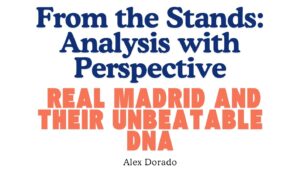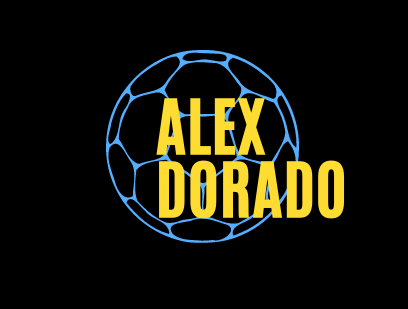From disappointment to greatness: Real Madrid and its unbeatable genetics
I can say that it was one of the biggest surprises of recent days in the world of football.
Days before the Champions League match on Wednesday, February 19, I was analyzing the match between Manchester City and Newcastle. I wanted to see most of the new faces of Manchester City in an official match with their new shirt and against a great team from the English league, to be able to guess what the match against Real Madrid could be like.
I had already seen some minutes of Khusanov, with several important errors, good minutes of Omar Marmoush and some residual minutes of Nico, welcoming him to English football. In this match, the three players would be on the field, and I was curious to see how they could be an important part of a team, not long ago champion of the Champions League, that until that moment was not having great matches and, the most decisive thing for critics in this world called “modern football”, getting good results.
When it was over, I had a little hope that the next game would be one of those great European football matches, showing everyone that Manchester City would be on the mend.
One of the reasons was none other than the good performance of Nico, who, without being Rodri, generated greater security for the group. He linked up, seeking to generate superiority and attracting pressure with personality. At times, he seemed like the team captain or, at least, the “double” that Guardiola would want on the field. He gesticulated as if it were the coach himself who was playing with the FC Barcelona shirt, that number 4 and the captain’s armband.
I have always thought that the absence of Rodri was one of the main causes of the Manchester team’s problems, since what he offers to the idea they want to put into practice cannot be “imitated” by any other player that City had in the current squad. Nico’s arrival opens up the possibility that a player with similar characteristics can refloat the team and give greater consistency in transitions and offensive game.
The other reason was the stellar appearance (for those who didn’t know him) of Omar Marmoush, with three goals in the first half and actions that generated optimism for fans of good football. One-on-one situations looking for a shot, movements without the ball in the spaces created by Haaland, appearance as another midfielder to receive the ball between the lines or in creative areas… Variables that make him a player who can generate very positive actions for his team.
What fate wanted was for his first goal to be a goal similar to the one Mbappé scored in the few minutes of the Champions League match.
The current trend of Manchester City’s rivals is to look for man-to-man pressure or in areas close to the Citizen goal. This led to Omar’s first spectacular moment. Ederson’s pass and Omar’s movement from the left wing into the space created by Haaland, followed by a Trippier who failed to defend it, to finish with a chip that surpassed Dúbravka.
The disappointment
Watching a Manchester City team with the Manchester City structure we were used to seeing made me think that the Champions League match would be a competitive match, worthy of the best club competition in the world. Two great teams (not in their best form) facing each other to get through to the round of 16 of the continental competition. But it wasn’t like that; it was the opposite.
It was a competitive beast, which never fails in the big moments, called Real Madrid, competing against a lesser team. Everything we had seen three days before vanished when the white team was in front. Errors in passes, little ability to recover the ball with late pressure or movements of players who did not cut off passing lines, defenders with wrong positioning and runs to defend, without aggression…
The match ended with a great feeling of disappointment and happiness.
Disappointment for Manchester City and for what they proposed on the field, and happiness for seeing that competitive beast called Real Madrid. A team with the genetics that can transform itself into the best team in the world in the few minutes it takes to make history, to win games. That genetics that is passed down in Valdebebas from generation to generation. That “Until the end! Let’s go Real!” that we shout before every game and that transforms every young Real Madrid player into a competitive beast, and that, added to the quality and conditions of these players, make Real Madrid the best club in the world.

